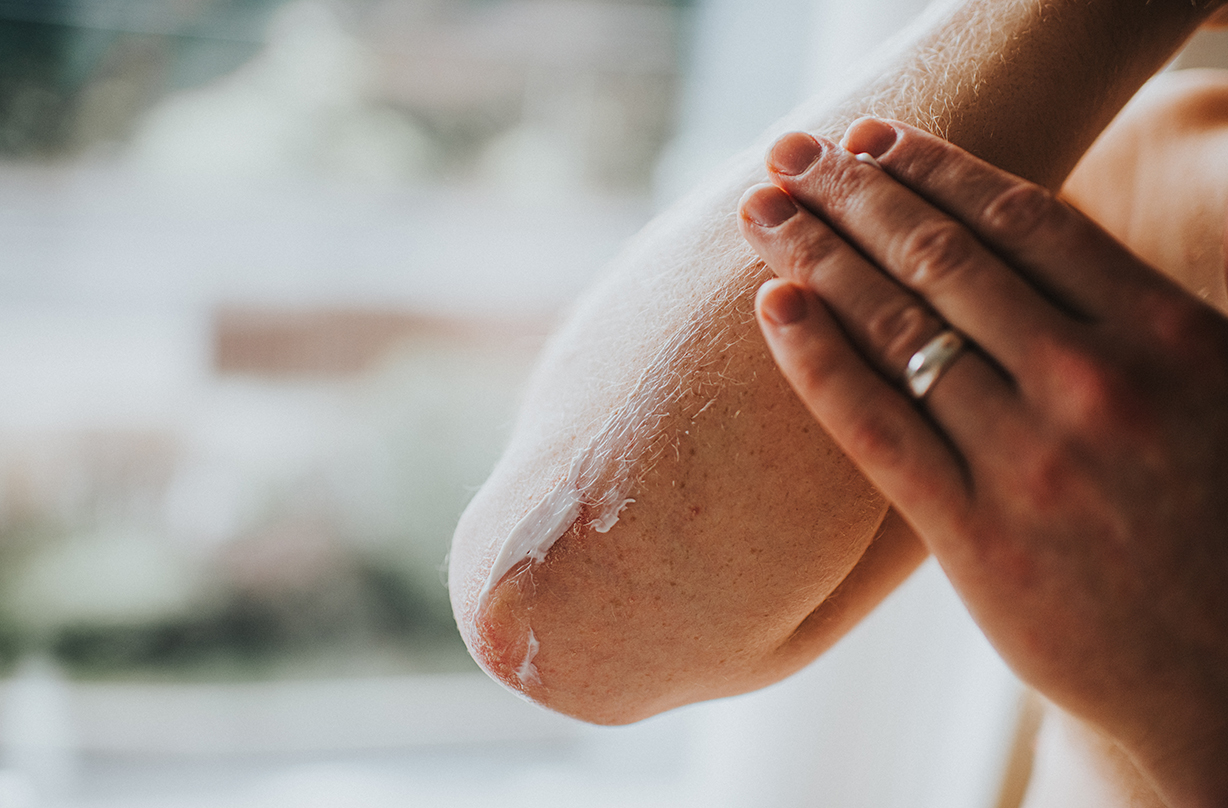Skincare warning issued as creams found to catch fire when dried onto fabric


A skincare warning has been issued after certain creams were found to catch fire when dried onto fabric.
Emollient creams have been used historically by those attempting to manage dry skin conditions like eczema and psoriasis, but now a skincare warning has urged caution when using the creams.
Research has found that when the creams have been transferred from skin over onto certain fabrics, like bedding and clothes, it makes the fabric more flammable.
So now the Medicines and Healthcare products Regulatory Agency (MHRA) has teamed up with the National Fire Chiefs Council (NFCC), Fire and Rescue Services and health charities to raise awareness of the risk and highlight precautions that can be taken in a new campaign.
Officials warn that emollients can dry onto bedding, clothes and bandages, and can stay on there even after being washed.

The MHRA recommends that anyone over 60, who has reduced mobility or is a smoker should organise a fire service assessment of their personal space, with an extra warning that they should be extra cautious around open flames.
“We want to ensure that those who are at greatest risk, and their carers, understand the fire risk associated with the build-up of residue on clothing and bedding and take action to minimise the risk,” said Sarah Branch, director of MHRA's vigilance and risk management of medicines division.
Parenting advice, hot topics, best buys and family finance tips delivered straight to your inbox.
“Anyone who uses emollients and has any questions or concerns should speak to a healthcare professional, such as your pharmacist or GP.”
“We now know that all emollients, combined with factors such as smoking or mobility issues, pose potential fire risks and this applies to both paraffin and paraffin-free products,” added Rick Hylton, lead of the national fire chiefs council home safety committee. “Washing fabrics does not fully remove this risk.
“This doesn't mean people shouldn't use these products, but we urge people to follow the updated fire safety advice.
MORE: Sudocrem uses: 11 things you didn't know you could do with the emollient cream
“If you use these products and smoke, don't do so when wearing clothes or bandages that may have dried-on emollients,” he went on.
“Don't smoke in bed as bedding may have residue on it and be careful around other heat sources such as gas, halogen or open fires and when cooking.”
Officials went on to clarify that those who rely on emollient use should not stop using them, explaining that the creams are not flammable alone or when on the body.
“These creams are vital in helping to manage dry skin conditions,” adds the guidance.
“Healthcare professionals should continue to recommend them for chronic dry skin conditions and those using them should continue to do so as directed while remaining alert to the risk of fire when dried on to fabric.”

Aleesha Badkar is a lifestyle writer who specialises in health, beauty - and the royals. After completing her MA in Magazine Journalism at the City, the University of London in 2017, she interned at Women’s Health, Stylist, and Harper’s Bazaar, creating features and news pieces on health, beauty, and fitness, wellbeing, and food. She loves to practice what she preaches in her everyday life with copious amounts of herbal tea, Pilates, and hyaluronic acid.